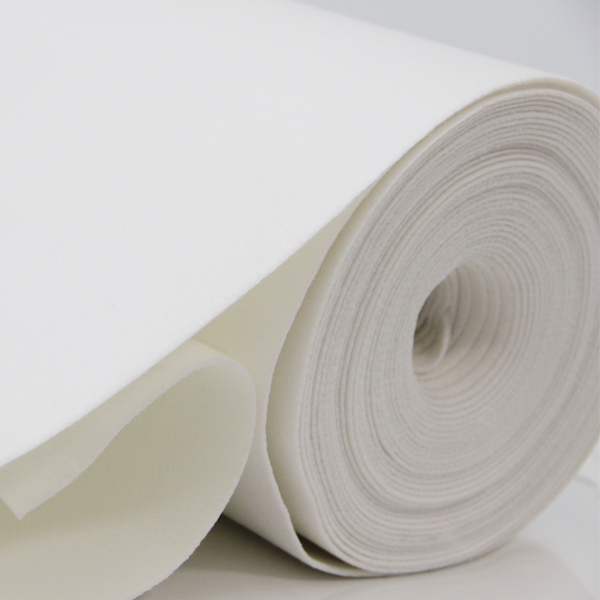Dust Filter Bag Materials Polyester vs Nomex vs Fiberglass - What is Best for Your Application?
Description: Selecting the optimal filter bag material is crucial for maximizing the performance and lifespan of industrial dust collection systems. This article provides a detailed comparison of the three most common types of filter bags - polyester, Nomex, and fiberglass. Learn about the unique properties, advantages, disadvantages, and ideal applications for each filter material. Discover which factors to consider such as operating temperature, chemical resistance, efficiency, abrasion resistance and cost. Get recommendations on choosing the right filter bag for your specific emission stream and process conditions. With this guide, you'll be equipped to select the perfect filter bags to meet your plant's particulate emissions control needs. The proper baghouse filter bag material improves filtration efficiency, reduces operating costs, and ensures compliance with air quality standards.
* Polyester Filter Bags:
Advantages of Polyester Filter Bags:
Polyester felt is one of the most common dust filter bag materials due to its balance of performance and cost-effectiveness. Polyester filter bags are constructed of polyester fibers woven into a felt material.
1. Low Cost - Polyester is the least expensive filter media, making it economical for many applications. The bags are easy to manufacture.
2. Widely Available - Many suppliers offer polyester bags in a range of sizes and configurations for simple replacement.
3. Adequate Temperature Resistance - Can withstand temperatures up to 180°C continuously, suitable for many flue gas streams.
4. Moisture Resistance - Polyester has moderately good resistance to humidity and water.
5. Easy Handling - The lightweight polyester construction makes installation and change-out simpler.
Disadvantages of polyester filter bags:
Not recommended for fine particulate filtration applications.
You can also directly consult our sales engineers for free consultation services regarding your dust collection and denitrification projects.
↓ ↓ ↓ ↓ ↓
Contact us now!
* Nomex Filter Bags:
Nomex filter bags are made of high-temperature resistant synthetic fibers that provide excellent filtration performance in hot, demanding industrial applications. Nomex bags offer superior chemical and abrasion resistance, lasting up to twice as long as other filter materials.
Advantages of Nomex Filter Bags:
1. High Maximum Temperature - Can withstand continuous temperatures up to 260°C, with excursion temperatures up to 310°C. This makes Nomex suitable for hot flue gas streams.
2. Chemical Resistance - Nomex has excellent resistance to acids, alkalis, greases, oils and a wide range of organic solvents. It is unaffected by most chemicals encountered in industrial flue gas.
3. Long Service Life - Nomex is highly resistant to abrasion and flexing compared to other filter materials. Properly installed Nomex bags can last up to twice as long as polyester or fiberglass.
4. High Filtration Efficiency - The sub-micron Nomex fibers have a fine web structure that achieves high capture efficiency, especially for PM2.5 particulates.
5. Anti-Static Properties - The conductivity of Nomex prevents a static charge buildup that could lead to poor filtration and bag explosions.
Disadvantages of Nomex Filter Bags:
Conductivity - The conductive nature of Nomex requires special grounded handling procedures during bag changeouts.
You can also directly consult our sales engineers for free consultation services regarding your dust collection and denitrification projects.
↓ ↓ ↓ ↓ ↓
Contact us now!
* Fiberglass filter bags:
The fine glass fibers trap submicron particulate down to PM1 levels with 99%+ efficiency. Fiberglass offers excellent corrosion resistance and high load capacity in wet or dirty gas streams.
Advantages of Fiberglass Filter Bags:
1. High Temperature Tolerance - Fiberglass maintains integrity up to 400°C continuous temperature, with excursions over 500°C. Applicable for very hot flue gas streams.
2. Excellent Filtration Efficiency - The fine glass fibers trap submicron particulate very effectively. Fiberglass typically achieves 99%+ filtration efficiency.
3. Rigid Construction - The stiff and resilient nature of fiberglass strands maintains the filter bag shape and permeability.
4. Corrosion Resistance - Unaffected by moisture or chemical corrosion and suitable for scrubber applications.
5. High Load Capacity - The durable glass strands enable high dust holding capacity and long service life.
Disadvantages of Fiberglass Filter Bags:
Cost - More expensive than polyester or Nomex, offset somewhat by long lifespan.
You can also directly consult our sales engineers for free consultation services regarding your dust collection and denitrification projects.
↓ ↓ ↓ ↓ ↓
Contact us now!
Recommendations:
Provide guidance on selecting material based on operating temps, emissions types, cost factors
Suggest consulting with filtration experts for specific application requirements

Founded in 2005, Yuanchen Technology focuses on technology development and application in the field of environmental protection, pioneering and innovating in industrial flue gas filtration, denitrification, circular economy, intelligent environmental protection, etc. It is committed to the frontier of industry technology and promotes the integration of new business models in the environmental protection industry, and is an enterprise with the qualification of R&D, design and production of high-efficiency filter media and SCR denitrification catalysts as well as recycling and reclamation of used catalysts, with CNAS and CMA testing qualification.